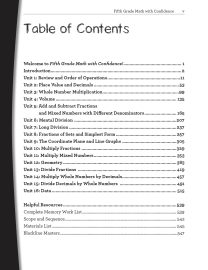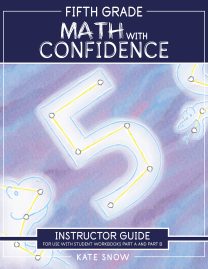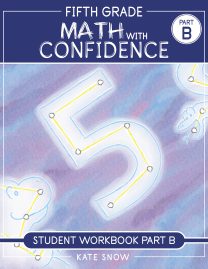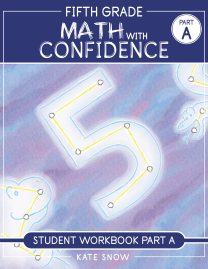

Your Children Are in Virtual School. How Do You Thrive?
Try Thinking Like a Home Schooler!
You never intended to home school. You have a demanding job, your kids were doing just fine in your local school, and you didn’t plan a major change.
And yet, here you are: working in the living room while your kids are “attending” their classes by Zoom.
Online school can be stressful, demotivating, and impersonal. The sudden togetherness of everyone working at home can feel both claustrophobic and isolating. And without the external structures of school periods, lunch, recess, and breaks, students can feel adrift.
Long-time home school families can offer you some help. After all, they’re accustomed to being home with the children all day, every day. So, with the help of some experienced, thoughtful parents, I’ve assembled a few ways in which you can re-orient your thinking in order to stay sane.
I’ll start with my own experience as the mother of four (now grown) home schooled students: A weekly schedule that gives each day some definition is a must. When quarantine began, we drew up a weekly plan and posted it on the fridge. Mondays, everyone collected dinner and went to eat in their rooms (and recover). Tuesday was dinner around the table and everyone had to tell their favorite and least favorite thing that had happened over the previous week. Wednesday, game night. Thursday, movie night. Fridays, we all performed a musical piece, since that’s how we roll, but you could choose something else instead. The point was to keep each day from bleeding over into the next without noticing.
This kept us sane, gave us points to orient our days around, and kept the weeks from passing by in a long undifferentiated stream.
“If somebody’s crying,” Kristen L. F. points out, “nobody’s learning.” So true: when the emotions boil over, there’s no point in pushing through. Step away from the computer. Fix a snack, take a walk, run a hot bath. Go back to the computer afterwards. Kristen adds another tip for parents who find themselves supervising reluctant kids: “You can hold the limit without stepping into a power struggle. Find other ways besides ‘insisting’ to make sure things get done. Work together to meet your goals. They don’t have to agree with you. You don’t have to convince them. It just has to get done. Take the emotion out of it.” Elisabeth C. couldn’t agree more: Your child “isn’t going to learn with tears running down her face. Instead, switch gears: move to another subject, get a snack, go for a walk, or read a book while sitting close to her. Try again once she has had a chance to gather her confidence.”
They may be home, but they’re not alone. “Siblings are excellent socialization partners,” says Sarah B., so it’s important to protect the sibling bond. “It’s OK to drop everything and take every minute needed to repair a broken relationship or foster one that’s building a spirit of team.” Desiré C. P. adds an important point: “Sometimes an older sibling can explain a concept better, or in a way that connects better, than the teacher or parent.” And Maggie F. points out that “teaching the concept usually reinforces it for the older sibling, as well.”
Students in virtual school are following someone else’s schedule, so it’s important to make a space during the day for them to do something educational that they pick. Let them follow their noses—into a daily hour of programming, or graphic novel composition, or embroidery, or Sculpey modelling. Make that student-led time part of “school,” but give your students some control over it. “I’ve had numerous conversations with parents recently,” writes Christine Anne, “especially those who are virtual schooling, who are losing their minds because their children are following their natural curiosities instead of sticking to the pre-established schedules and structures. There’s a real fear among parents that self-led learning equals lack of discipline.” News bulletin: Self-led learning is the most genuine form of education there is. Don’t be afraid of it.
Kids who are sitting in front of a computer need to get up and move! Jennifer W. W. recommends “bursts of physical exercise in between subjects.” And your student can always cut off his microphone and/or camera and leap around while learning. “Some kids need to move and make noise in order to concentrate,” Liz D. says. “Enforcing quiet and stillness is necessary in classroom, but at home you can have some ‘wiggle room.’”
While you’re thinking about the physical, take Angela M.’s advice: “Sometimes the table and chair don’t cut it. Go for comfort. One of the most imaginative places my kids did their work was in a bathtub filled with throw pillows. It was quiet, comfortable, and out of the ordinary – whatever it takes to keep them going! Try box or pillow forts, tents, hammocks—just let your kids think outside the box!” Colleen C. S. agrees: “It’s OK for them to lie on the floor or sit under the table to do their work. They don’t need to sit on a chair at a desk.”
And here’s our final tip: Sometimes, if you get up in the morning and simply can’t face school, you should ditch it for the day, call in sick, and play board games and eat brownies instead. Kelly W. tells us, “I’ve got a formerly homeschool teenager in high powered public school, full time virtual, right now. She’s ‘supposed’ to be on Zoom 7 hours a day. Plus hours of homework. Don’t be afraid to skip school! Play hookie. Mental health day. Duck out early. Sit in the art museum and let that nth percent on your chemistry grade slide. Feed your homework to the dog…Find out how many days can they take off school without serious consequences and take them ALL!” Kate S. adds, “If the idea of giving your kids a surprise day off to play outside on a beautiful day or watch movies on a rainy day or go on some kind of adventurous excursion stresses you out because you would ‘get behind,’ you’re doing it wrong.”
We’re thinking about all of you accidental home educators. Try out our forums, where you’ll find not just long-timer homeschoolers, but thousands of other parents who are helping their kids survive and thrive in these difficult times. Check out our “how to home school” articles for more tips. And if we can help, drop us a note.
Recommended Products
-

Juneteenth Booklist & Activities
0 out of 5$0.00 Add to cart -


Fifth Grade Math with Confidence Instructor Guide
0 out of 5Starting at:$36.95Original price was: $36.95.$27.71Current price is: $27.71. Select options -
Sale!

Hansel & Gretel and Other Stories: Downloadable MP3
0 out of 5$12.95Original price was: $12.95.$8.42Current price is: $8.42. Add to cart -
Sale!

Dorothy and the Wizard in Oz: Downloadable MP3
0 out of 5$25.95Original price was: $25.95.$16.87Current price is: $16.87. Add to cart -
 Sale!
Sale!

Fifth Grade Math with Confidence Student Workbook B
0 out of 5$16.46 – $21.56 Select options This product has multiple variants. The options may be chosen on the product page -
 Sale!
Sale!

Fifth Grade Math with Confidence Student Workbook A
0 out of 5$16.46 – $21.56 Select options This product has multiple variants. The options may be chosen on the product page
ABOUT THE AUTHOR
Susan Wise Bauer
Join over 100,000 homeschooling families
For the latest offers, educational insights, products and more.
By joining you agree to our privacy policy.



















1 thought on “Trying Out Homeschool, Part I: Think Like a Homeschooler”
excellent and insightful